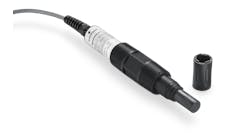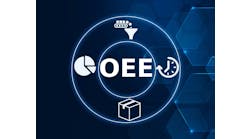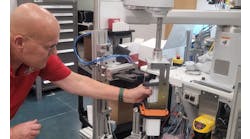One of the key ingredients is an individual or two—or more—whose focus is observing, reporting, interpreting, filtering and acting on the messages they're getting from smart devices. This can't be the person who's there because he's not able to do anything else, or a dabbler who's on restricted duty for a couple weeks or months, and spends more time in the smoke shed than in the field. You need a consistent player, whose role remains I&C focused, who's capable of delving into manuals, ordering parts or working with suppliers to resolve issues. His or her role is to ferret out all the loose threads of error messages and diagnostic information. and use it to run down unmanaged risk: "I'm getting a few recurring messages from the positioner on FV-201; you may want to review with your crew how you'd run on the bypass should it fail."
That's managing risk, and it's at least a marked improvement over, "Criminy! The top of the debutanizer is flooded! I wonder what the hootch is going on now?" at 3 a.m.
[pullquote]If you're gathering diagnostics from 1000 smart devices and the control system itself, managing that data becomes a full-time job. If no one does the job, the work practices revert to firefighting, and device alerts become spam. That kind of environment begs for a permanent position you'll want to fill with someone who's likely to have other opportunities, owing to his or her abilities and work ethic. That means competitive pay and preferably a veteran who's both systems and process savvy.
Meanwhile, our management keeps reading about ever-smarter devices writing their own work orders. We've all seen them dozens of times—the little dashed lines that imply that the positioner on FV-201 has emailed the supplier, written a work order, requisitioned its replacement and begun work on debottlenecking the rest of the unit. It all sounds great to the manager. He hears, "You won't need so many people."
They're always getting flogged to cut costs, which to them usually means cutting head count. You might be reluctant to say, "We need to spend more money to get the value from our smart devices." Better to say, "We're learning a new way to get value from our I&C investment. Will you support a pilot program for three years?"
Give yourself a year to develop people and begin documenting "saves" immediately. People like us have done this on an informal basis and recorded millions of dollars in savings from shutdowns or upsets that didn't happen to safeties that didn't lift and columns that didn't flood. I sat in on a paper presentation last year in which a fellow from a major chemical firm (hint: begins and ends with an "L") started a program at his plant, and now has authorization and funding to deploy his strategies at the major's remaining chemical plants. He's convinced his management to spend another $400 or $500 per instrument for advanced diagnostic capabilities like plugged impulse line detection and statistical anomaly alerts. Once your operations clients understand how this effort is keeping them on line, they'll start writing the work orders themselves to get it deployed elsewhere.
So your pitch goes something like this: "Dear Plant Manager, we see a chance to get distinctive and strategic value from intelligent devices; give us a chance to prove we can do it. For the pilot, we need some key individuals on special assignment—maybe a talented operator on day trick for a spell. If we succeed, understand we'll have to make those positions permanent to keep delivering the value."






